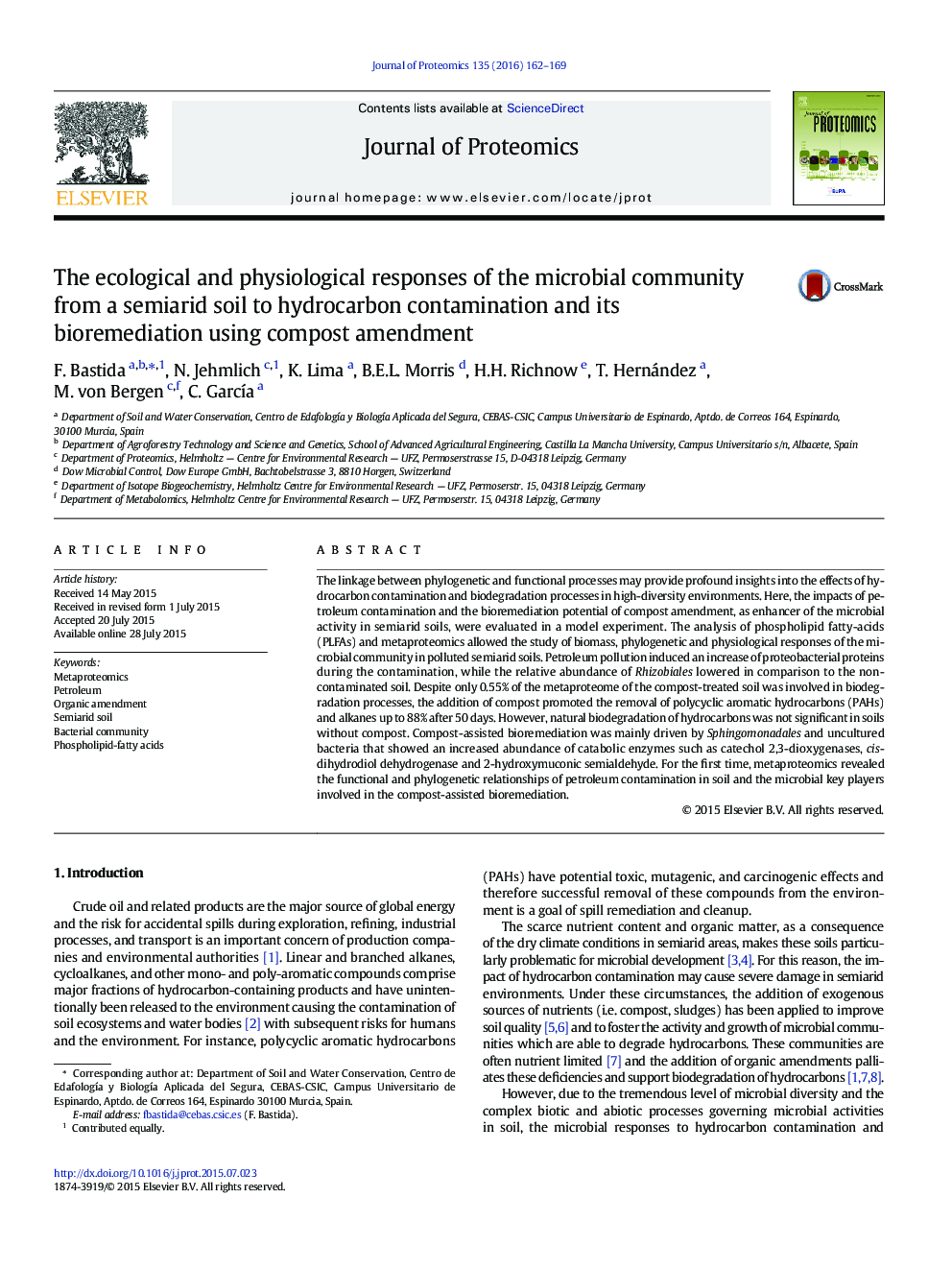| کد مقاله | کد نشریه | سال انتشار | مقاله انگلیسی | نسخه تمام متن |
|---|---|---|---|---|
| 1225750 | 1494746 | 2016 | 8 صفحه PDF | دانلود رایگان |
• The impact of hydrocarbon pollution in the soil microbial community was evaluated.
• Functional and phylogenetic insights were retrieved by metaproteomics.
• Fatty acid analysis and proteomics tracked the variations in microbial biomass.
• Compost amendment stimulated the biodegradation of hydrocarbons in semiarid soils.
• Sphingomonadales bacteria were involved in the biodegradation of hydrocarbons.
The linkage between phylogenetic and functional processes may provide profound insights into the effects of hydrocarbon contamination and biodegradation processes in high-diversity environments. Here, the impacts of petroleum contamination and the bioremediation potential of compost amendment, as enhancer of the microbial activity in semiarid soils, were evaluated in a model experiment. The analysis of phospholipid fatty-acids (PLFAs) and metaproteomics allowed the study of biomass, phylogenetic and physiological responses of the microbial community in polluted semiarid soils. Petroleum pollution induced an increase of proteobacterial proteins during the contamination, while the relative abundance of Rhizobiales lowered in comparison to the non-contaminated soil. Despite only 0.55% of the metaproteome of the compost-treated soil was involved in biodegradation processes, the addition of compost promoted the removal of polycyclic aromatic hydrocarbons (PAHs) and alkanes up to 88% after 50 days. However, natural biodegradation of hydrocarbons was not significant in soils without compost. Compost-assisted bioremediation was mainly driven by Sphingomonadales and uncultured bacteria that showed an increased abundance of catabolic enzymes such as catechol 2,3-dioxygenases, cis-dihydrodiol dehydrogenase and 2-hydroxymuconic semialdehyde. For the first time, metaproteomics revealed the functional and phylogenetic relationships of petroleum contamination in soil and the microbial key players involved in the compost-assisted bioremediation.
Figure optionsDownload high-quality image (145 K)Download as PowerPoint slide
Journal: Journal of Proteomics - Volume 135, 1 March 2016, Pages 162–169
